“How devastatingly hateful this murdering beings ‘custom’!
How hugely regrettable this self-deception ‘custom’!
How heavy a weight this killing parents ‘custom’!
How much wrong action for this stacks of meat ‘custom’!
What to be done for this masses of blood ‘custom’!
However hungry, this eating meat ‘custom ’!
What are these mental appearances of this delusional ‘ custom ’?!
Such major evil this zero compassion ‘ custom ’!
What dark ignorance and obscurations is this stupidity!
What to be done about this evil ‘farming’!
Whose desires for pleasure cause this torture ‘custom’?!”
–excerpt from Jetsun Milarepa’s Song to the Suffering of Animals
“In particular, it is necessary to have food to continue living, so one has to eat. However, we should think about food as medicine and eat it at the right time and in moderation. If one eats it like a pig or dog, then that is not alright.”
“If you brought a live chicken in front of a child and said you were going to kill it, they would say no, it’s really beautiful and nice and not want to kill or eat it. So, we don’t need quotations and logic. If we need to use scriptures and logic as proof to make us do something that ordinary beings can easily understand, it is actually a disgrace.”
– 17th Karmapa, Ogyen Trinley Dorje (March 2021)
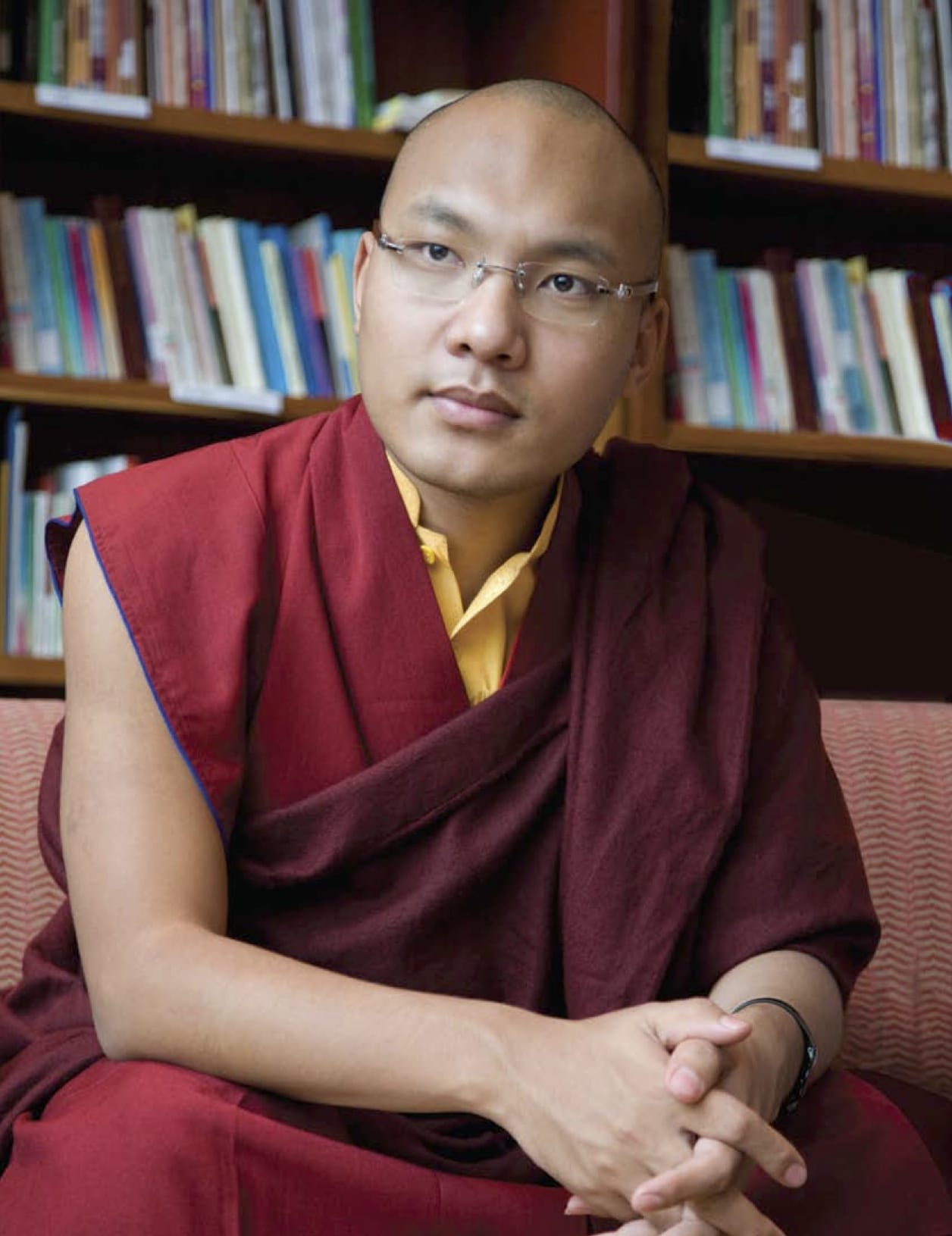
The great Buddhist texts say there is no better offering to Buddha, or one’s guru, than the Dharma and applying the teachings. Thus, for the 17th Karmapa’s 36th official birthday today, 26th June 2021, I offer the first published compilation of his recent, extensive teachings on vegetarianism in Buddhism, ancient and modern (Days 13-17, of a month-long teaching on the 8th Karmapa’s ‘Good Deeds’ text). In fact, the 17th Karmapa taught in Bodh Gaya, 2007, not only that eating meat was not Buddhist, unnecessary, cruel and lacking compassion but that if his followers wanted his life and activities to be long and healthy, they should immediately stop eating meat. It is downloadable as a .pdf file on Academia.edu here.
People often wrongly assume that vegetarianism in Tibet is a modern-day phenomenon. However, as scholars like Barstow (2019) have pointed out, despite the great difficulties of being vegetarian in Tibet, due to climate and vegetation, there are many examples of great Tibetan Buddhist masters advocated vegetarianism, such as Ngorchen Kunga Zangpo, Jonang Kunkhyen Dolpopa, 4th Karmapa, 8th Karmapa, Patrul Rinpoche and, more recently, Jadral Rinpoche, Khenpo Tsultrim Lodro Rinpoche, Jetsunma Tenzin Palmo and 17th Karmapa, Orgyen Trinley Dorje.
Aside from being the foremost gender equality and female empowerment spokesperson in Tibetan Buddhism (see here), the 17th Karmapa is one of the world’s leading Tibetan Buddhist advocates of vegetarianism and animal rights for compassionate, environmental and ethical reasons. He has spoken on this topic many times (see here and here). In addition, as a young adult, despite having been brought up as a meat-eater in a nomadic family in Tibet, he later abandoned meat and expressly discouraged others from buying, making and eating meat.
I was personally present at the speech the 17th Karmapa gave at the Kagyu Monlam in 2007 in Bodh Gaya, India (for a translation of it see here), in which he forbade the buying, cooking and consumption of meat in Karma Kagyu Dharma centres and monasteries. It sent some shockwaves through the audience at his direct and forthright insistence that it was neither Buddhist, nor part of the Karma Kagyu tradition, to eat the flesh of animals deliberately killed for food.
Not so much is known about the previous Karmapas and their stance on meat-eating though. In fact, recent academic articles on the topic of vegetarianism in Tibet, past and present, have overlooked the strict vegetarian lifestyle and attitude of previous Karmapas. As the 17th Karmapa explained, vegetarianism is not some modern phenomenon among Tibet, previous Karmapas were also passionate advocates of abandoning eating the flesh of murdered animals.
These recent teachings are remarkable in that they are the first time such a senior Tibetan Buddhist teacher and head of one of the four major lineages has given such detailed teachings on the history of Buddhist vegetarianism but also the reasons for that strict vegetarianism. There are other teachers who have strongly emphasized the need for vegetarianism, such as Jadrel Rinpoche and but the 17th Karmapa is unique in being the head of a lineage to have done so.
CONTENTS
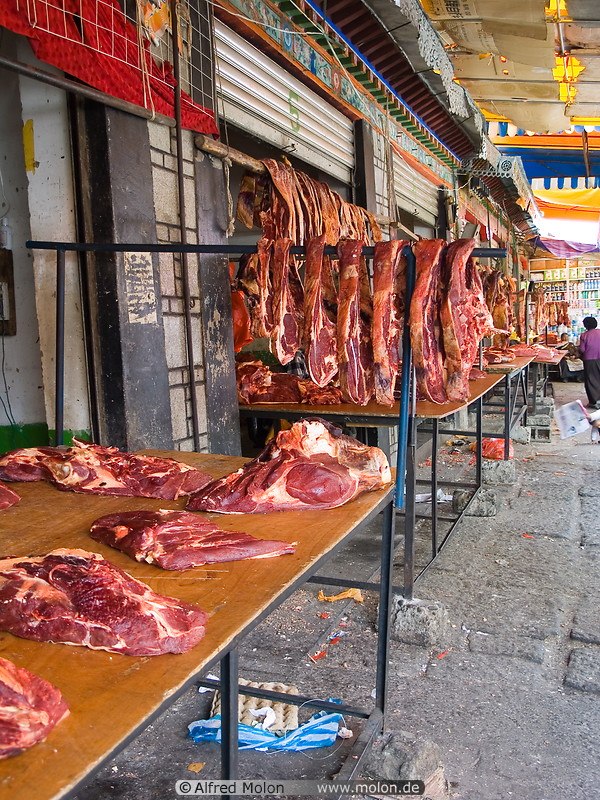
There are six chapters/sections in this edited publication. These sections can all be read at the website links provided below, however, I have also compiled a .pdf document of all the teachings that can be downloaded here: The 17th Karmapa on Buddhism, Vegetarianism and Eating Animals.
1. ‘If you eat meat you are not a Kagyupa”: The Karmapas’ strict vegetarianism and abandoning the eight impure things
This section gives detailed descriptions of about the previous Karmapas’ strict vegetarianism, such as the life of the 4th Karmapa and his founding of the Karma Kagyu Great Encampment with its strict rules against meat eating and alcohol, as well as the reasons for the 8th Karmapa’s strong vegetarian stance. This is shown in the texts the 8th Karmapa wrote himself, for example, in his Great Commentary on the Vinaya, it says it is forbidden to put meat in the Gutor or Mahakala rituals, that people are not allowed to do this. That if they did that, ‘you are not taking me as your teacher and I do not think of you as my students and you should think about that’. He said this very forcefully and insistently. Similarly, Mikyo Dorje also said in his Hundred Short Instructions, that as soon as people ‘go forth’ and become monastics, they must refrain from the eight impure things, such as meat, alcohol, armour, weapons, riding animals, business and housing, milking and animal husbandry. Particularly, in relation to meat, alcohol and weapons, one is not supposed to even look at them, forget about using them!
2. Rules for Buddhist monastics and the three ‘purity’ test for offered meat
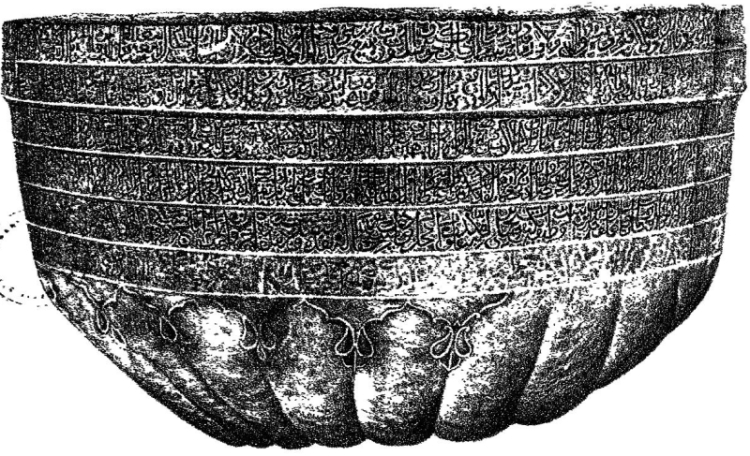
This section is a detailed teaching and explanation regarding the Vinaya rules that were laid out by the Buddha for monastics on eating animals that have been slaughtered for food. Often people think Buddha taught that monastics could eat meat and thus did not forbid meat, however, as the 17th Karmapa clearly explains, that is mistaken and incorrect. He gives quotations from five texts of the different Vinaya schools, several of which he translated from the original Chinese. Among them, the first three are generally for the fully ordained and novice monastics. The last two citations also say that laypeople with the five lay precepts may not eat offered meat, if it is has been killed for them. In summary, Buddha did say that monastics could eat meat, but only under very strict conditions in the context of monastics begging for alms, and only as long as the animal had not been killed specifically for them. It did not mean that monastics themselves should seek out and request meat, or that it was alright to eat slaughtered animals generally. The Buddha was not condoning killing and eating animals at all, as can be seen in his clear Mahayana teachings that expressly forbid it. I have also added a final section regarding the discovery of the Buddha’s alms bowl, by the 4th Century Chinese traveler, Faixian (who is referred to by the 17th Karmapa in this teaching), which is said to be currently housed in Kabul, Afghanistan.
3. Compassion not Competition: the Mahayana View on Eating Animals
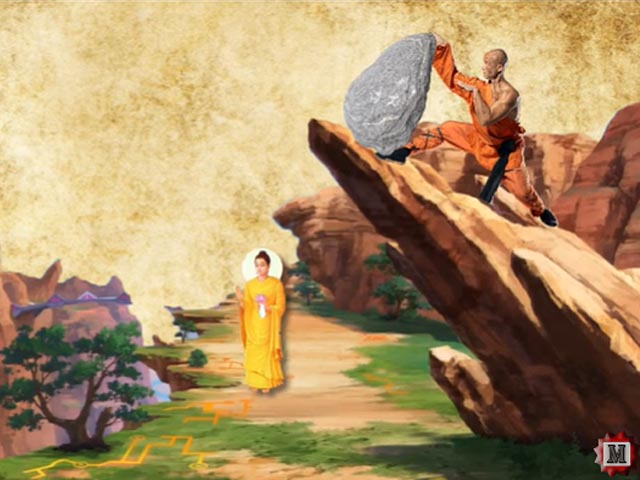
This section moves from the Vinaya and Hinayana approach to considering the differing motivations of Buddha’s vegetarian disciples, Devadatta, Mahākāśyapa and Bakula; followed by the Mahayana Sūtras on great compassion and Buddha-Nature; and Chinese Buddhist vegetarianism with its emphasis on compassion for animals and their inherent Buddha-Nature. The first disciple was a cousin of Buddha, Devadatta, who also tried to murder the Buddha, and insisted there should be strict vegetarianism, that forbids even offered meat that is pure in the three ways. As Devadatta’s motivation was competitive and egoistic pride (to humiliate the Buddha), not predominantly of compassion for the animals, it was not done for the right reasons and led to a schism in the sangha. The Karmapa then explained that Devdadatta’s example does not mean we should eat meat. He described two of Buddha’s other disciples, Mahākāśyapa and Bakula who were both vegetarians.
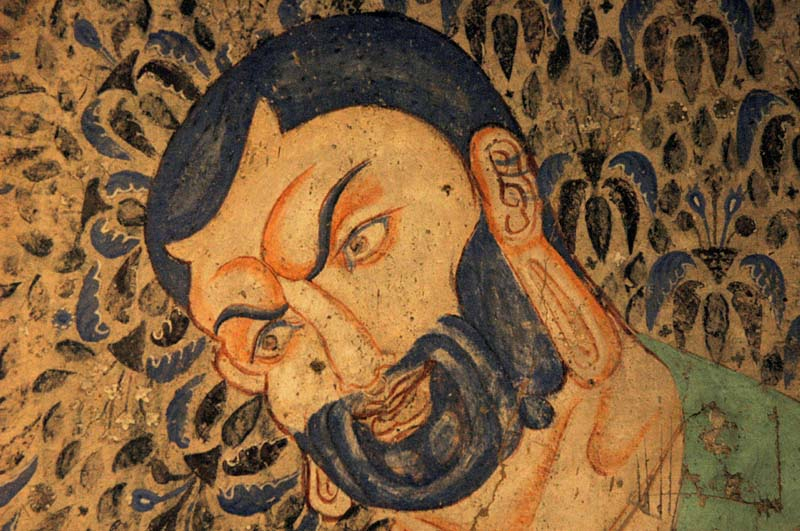
After that, there is a discussion of how the Mahayana tradition and sutras expressly forbids eating meat, out of love and compassion for animals. In particular due to the Buddha-Nature sutras that teach all beings have the inherent Buddha Nature. Citing the Mahayana Sutras as the cause of the spread of vegetarianism in Buddhist China, due to the influence of Chinese monk Emperor Wu, the Karmapa concluded that the reason why vegetarianism spread so widely in China and less so in Tibet, was due to the influence of such devout Buddhist rulers but also due to the climate and lack of plant vegetation in Tibet. However, despite the geographical limitations, there were several well-known Tibetan Buddhist masters who gave up meat in Tibet and in exile.
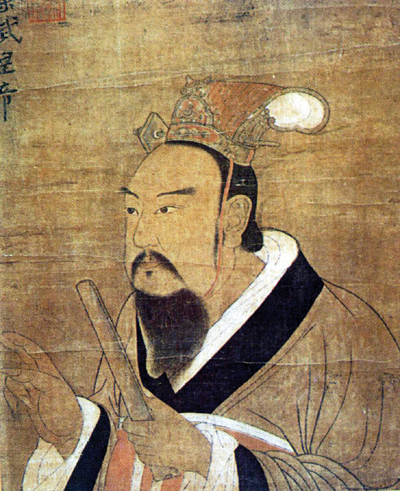
In addition, the 17th Karmapa considers the meat-eaters’ ‘pointless doubts’ about the unintentional killing of insects while cultivating crop food, concluding that even Buddha taught it is an irrelevant and worldly question in terms of the issue of eating slaughtered animals.
4. Milarepa’s Sorrowful Song on the Suffering of Animals and the Evil ‘Meat-eating’ custom

This section describes the background to a song composed by famous yogi and Kagyu forefather, Jetsun Milarepa spontaneously composed while witnessing the horrific death of a slaughtered sheep, which he sang to his student, Rechungpa, together with my English translation of it (with Tibetan and phonetics). Reading this song, there can be no doubt that Milarepa did not advocate eating slaughtered animals. It is the ancient equivalent of the song ‘Meat is Murder’ by The Smiths.
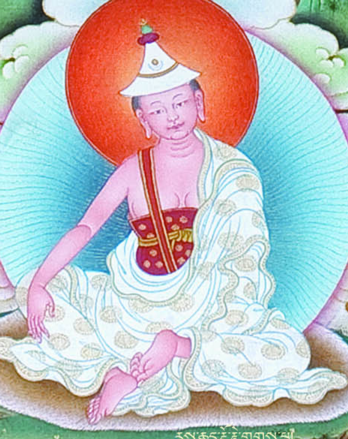
5. ‘Unbearable Grief, like eating the flesh of one’s own child’. Jamgon Kongtrul, Drugpa Kunle and 17th Karmapa on the horror and sadness of eating slaughtered animals

This section is on ‘dokar’ “veggie broth monastic practitioners in Tibet, and two more specific examples of well-known Tibetan and Kagyu vegetarians. It describes the stance of 19th Century master Jamgon Kongtrul Lodro Thaye (1813-1899) and his written aspiration that he may be re-born in a body and place where he does not have to eat animals. This is followed by the experience of the Drugpa Kagyu master, and ‘crazy yogi’, Drugpa Kunleg (1455-1529), who described how eating meat should be seen (and experienced) as distressing and painful as having to eat the flesh of one’s own child.
The 17th Karmapa also describes his own decision to abandon eating meat and how he grew up eating meat in a nomadic family in Tibet, yet was horrified by the way animals were killed (like Milarepa). However, he still continued to eat meat even after he came to India. His attitude completely changed when he saw a video in which animals were slaughtered. After that, he said it was no longer possible to eat meat, and he gave it up completely.
6. Ngorchen Kunga Zangpo and the Origin of the Single-Sitting Vegetarian Practice

This section is an added research extension to the 17th Karmapa’s teachings, and is about the influential Sakya master, Ngorchen Kunga Zangpo (1382-1586) ’s strict vegetarianism, the origin of the ‘single-sitting’ vegetarian practice, said to have been one of the four transmissions of the (Middle Region Vinaya) from Śākyaśrī Bhadra (1127- 1225), which was then transmitted to the four Joden Monastic communities, one of whom, the Gedun Gangpa, had a strong connection to the monastic ordination of the Karmapas and other Kagyu masters.
CONCLUSION
Whatever one may now think of the 17th Karmapa (and it is hoped that the truth and justice will reign supreme in the continuing allegations about him) [1] one cannot deny that his strong stance on meat-eating and vegetarianism is unparalleled among the heads of the four major Tibetan Buddhist lineages (some of whom regularly consume slaughtered animals without any reasonable justification). For that reason, the Karmapa’s teachings on this topic are to be celebrated and congratulated. After all, how can one seriously complain about being objectified and treated without love and compassion oneself, if one regularly (and unnecessarily) cosumes and treats animals as objects merely for personal pleasure and taste, without any care of the consequences on the animals, the environment, natural resources and health?
Being vegetarian certainly does not guarantee compassion, love and kindness for all either (as many meat-eaters love to quote, Hitler was a vegetarian). Nonetheless, it is surely still better, for the animals and planet, to be an unkind vegetarian than an unkind meat-eater (who consumes vegetables as well).
As the 17th Karmapa says:
“If, as a Buddhist, one eats a lot of meat and blood, then people may wonder what is going on. So for that reason, we need to know what others’ opinions are and not only focus on our own thoughts and habits. We cannot totally disregard others’ habits and thinking. Particularly, in the Mahayana tradition, the primary work is to liberate all beings from suffering and bring them to happiness which shows in the aspirations that we make, such as, “May all sentient beings be happy and have the causes of happiness and be free from suffering and the causes of suffering …” If we say that and yet deliberately harm sentient beings for food, that is in contradiction with those aspirations and is something we really need to think about. To eat meat or not is nothing complicated or profound like the concept of emptiness or selflessness. Actually it is very easy for anybody to understand it.”
Actions speak louder than words and what one regularly feeds oneself and others says a lot about your values and ethical principles. People can say they care about the environment and animals, yet still eat slaughtered animals; just as someone can say they are honest, and be a pathological liar. However, saying so does not make it so, we must practice what we preach. After all why would anyone want to emulate someone whose private, inner life does not match their public preaching? To end on a contemporary musical theme, as Morrissey of The Smiths sang in Meat is Murder:
“This beautiful creature must die,
A death for no reason,
And death for no reason is MURDER,
And the flesh you so fancifully fry
Is not succulent, tasty or kind
It’s death for no reason
And death for no reason is MURDER.”
May the 17th Karmapa’s teachings on this subject be studied and applied, may all his followers immediately stop eating meat, may humans stop consuming murdered animals, and may all animals suffering from torture, sickness, murder in slaughterhouses experience relief, love, compassion and freedom from suffering!
Written and compiled by Adele Tomlin, 26th June 2021. Copyright. Please share and distribute freely, with correct citation of source and/or permission of the author/publisher.
ENDNOTES
[1] Currently, the 17th Karmapa is facing public allegations of ethical and sexual misconduct from three Asian Chinese women. As I have been devotedly following him as a teacher since 2005 (and still am), it is distressing to read and hear these things. In particular, the recent Canadian court case for child and spousal support ( see https://www.bccourts.ca/jdb-txt/sc/21/09/2021BCSC0939cor1.htm) is disturbing due to the allegations as to how the child was conceived and the huge amount of money that was allegedly given for the child. As I am a survivor of lama misconduct, dishonesty, bullying, defamation, impersonation etc. myself (see here), I know very well how difficult, dangerous and damaging it is for survivors to speak out about these issues. It is part of the problem to ignore, hide or silence such allegations though.
For now, all I will say is that I hope the 17th Karmapa will eventually make a statement on these cases that will clarify the truth for all concerned in a transparent, caring and compassionate way. May love, compassion, justice and truth reign supreme for all concerned. After all, honesty, love, compassion and respect for women, children and animals are the foundation of the Buddha’s teachings in all three vehicles. In the Vajrayana, in particular, respect for women is paramount and lack of it is one of the fourteen root downfalls.
AUDIO AND TEXTUAL SOURCES
Bartsow, Geoffrey. 2019. The Faults of Meat. (Wisdom Publications). Free download here: https://www.academia.edu/43757269/The_Faults_of_Meat_Edited_by_Geoffrey_Barstow_Boston_Wisdom_Publications_2019_
Bartsow, Geoffrey. 2018. The Hidden Vegetarians of Tibet, see: https://tricycle.org/magazine/tibetan-vegetarians/
Tibetan Volunteers for Animals (TVA) (facebook.com)
HH Karmapa’s Speech on Vegetarianism (2007) Bodh Gaya, Part 1 of 5 – Tibetan – YouTube
Karmapa 17 Orgyen Trinley Dorje. 2007. Talk on Vegetarianism. 24th Annual Great Kagyu Monlam, Bodhgaya, India. Available online: http://www.shabkar.org/download/pdf/Talk_on_Vegetarianism.pdf.
Yak politics: Tibetans’ vegetarian dilemma amid China meat boom | China | The Guardian
Saving yaks from slaughter criminalised by China | Free Tibet
The Longstanding Debate over Vegetarianism in Tibet – Lion’s Roar
Buddhism and Vegetarianism | Articles in PDF (shabkar.org)
Ngorchen Künga Sangpo on the Faults of Alcohol and Meat | Joerg Heimbel – Academia.edu
‘Karmapa Mikyo Dorje’s Critique of Meat in Tantric Ritual’. In The Faults of Meat: Tibetan Writings on Vegetarian. Edited by Geoffrey Barstow. Boston: Wisdom Publications (2019).


Hello Adele, thank you for your wonderful compilation on the topic of vegetarianism as an offering in honour of His Holiness Karmapa on the occasion of his official thirty sixth birthday.
Just this morning I was randomly and rather lazily browsing the Web when I came across this to me rather startling teaching that I had not come across before. As a vegetarian and the owner of two much loved dogs ( Tibetan terriers naturally! ) as well as two very stubborn bossy cats this entirely new to me consideration as to the karmic consequences of castrating animals did set me back on my derrière. Needless to say all four male animals in our household are castrated. My wife insists on it, with me being the only exception to date. Joking aside, this really is a serious issue when one considers how many well-meaning Buddhists world wide are involved in the compassionate castration of dogs and cats, not least in Bodh Gaya itself. This is not something I have thought through as yet but it certainly strikes me as a very valid point of view and definitely worth consideration. So it is in that spirit that I have taken the liberty of copying below the excerpt from bodhiactivity.wordpress.com that struck me so forcefully this morning as I lay in bed coffee in hand browsing the web in my sleep. What an awakening, for me at least! And thus my desire to share with you and your readers in some small measure of thanks for your endless efforts and diligence in bringing the joy of dharma, warts and all, to the attention of your readers. So here it is:
******** ********. ********.
Some teachings on karma… you may not like it, but to me, it’s true.
Karma that causes families to break-up ~ Rinchen Dorjee Rinpoche
In this life, those whose families were broken up, it is definite that you have broke up other people’s families before. In this regard, ‘family’ does not only mean human families and it does not only refer to being a third party. But when you eat meat, you also eat the children or parents of other animals and cause the separation between them and their partners. It also includes castration of animals. This kind of negative karma is very heavy
Karmic repercussions of castrating animals ~ Rinchen Dorjee Rinpoche
Rinchen Dorjee Rinpoche once helped a doctor suffering from liver cancer. This man’s stomach was very distended and though a doctor himself, he was helpless about his own sickness, therefore came to seek Rinchen Dorjee Rinpoche’s help. Rinchen Dorjee Rinpoche examined the karmic causes of his sickness and found that this man had castrated many animals in the past. But this doctor was not a vet, so how would he have castrated so many animals? It turned out that when this doctor was in Hainan Island as a military doctor, while he was free and feeling bored, decided to castrate the local chickens, dogs etc. and other animals. He felt that he was doing a good deed to the loitering cats and dogs and felt that it would be good not to let them continue to multiply. Even bringing one’s own pet to be castrated, it is not good and there will be negative karmic results. Just think, if you were to be healthy and fine, would you be willing to have someone castrating you casually? If you are not willing to be castrated, then don’t do such things.
THE FOLLOWING ENTRY was on the same WordPress page and I have included it here as it does appear to take the discussion on to a whole different level, for me at least as a fairly newbie baby Buddhist, as to the ‘long term’ karmic consequences of animal slaughter and meat eating in general. Plus it also provides some very useful practical suggestions as to how one may immediately begin to take some profoundly meaningful first steps towards changing one’s ethical approach to the mindless ingestion of animal flesh.
So, with apologies for this gratuitously long post, here it is:
Of the Sage, The Buddha. Some discussion encouraging the abandonment of taking slain flesh as food for those desiring excellence
Written and compiled by Phurbu Tashi. Translated by Eric Triebelhorn, with helpful suggestion from Ngudop T Burkar.
http://www.gampopacenter.com/teachings/lamp-of-reasoning/index.html
________________
Comments: While it is not compulsory for a Buddhist to be vegetarian, the essence of Buddhism is great compassion for all beings. It is therefore very important to understand the reasonings and scriptural quotations pertaining to vegetarianism (as stated in the book above). And if one can, one should convert one’s diet to vegetarian at least partially, on certain days of the week, or of certain meals… and if it is possible, a full-time vegetarian diet, in a gradual fashion, with some research, deeper understanding and in a way that is sensitive to the feelings of others, esp family members.
The merits of being vegetarian is very great as one then is not directly contributing to the inhumane captivity, poor feeding and slaughtering of many beings in the most exploitative painful manner that the enterprises are doing… think about it, if we are indirectly giving others so much pain, should we expect to be always free from such pain in future? The evident consequences of cause-and-effect needs only be reflected upon carefully to be known. It is no use for one to give many excuses, tango with the interpretations of precepts/sutras because karma is not played out in a court with defense lawyers, with statutes or constitutions… it is a natural process of the universe that is completely visceral and direct, it does not pay attention to human feelings or emotions. So be careful what you are asking for… because the karmic effects are what you ask for when you plant the causes now . . .
Thanks for your comments here, yes warts and all Dharma it is! It is an interesting topic karma on castration of animals. I think it can be done out of love and compassion for unwanted babies who parents and society are unable to care for. After all, we have such procedures for men and women too, as well as contraception, to do the same. It all depends on motivation and on the benefit to the planet, society etc. Having children per se is not always a good thing. Unwanted and unloved children and animals cannot be a good thing either. For women, in particular, the ability to control reproduction in a loving and sensible way has enabled women to lead happier, freer lives without being constrained by motherhood.
Hello Paul, many thanks for these comments here! Very interesting and of course I agree with you that a vegetarian diet is an absolute must for anyone concerned about animal suffering, the environment, compassion and karma etc.
The sheer volume of uncared for homeless animals cluttering the streets created by our misguided “spiritual” refusal to castrate them that sentences them to a life of starvation, illness, abuse and an untimely death is far more an act of cruelty than compassion.